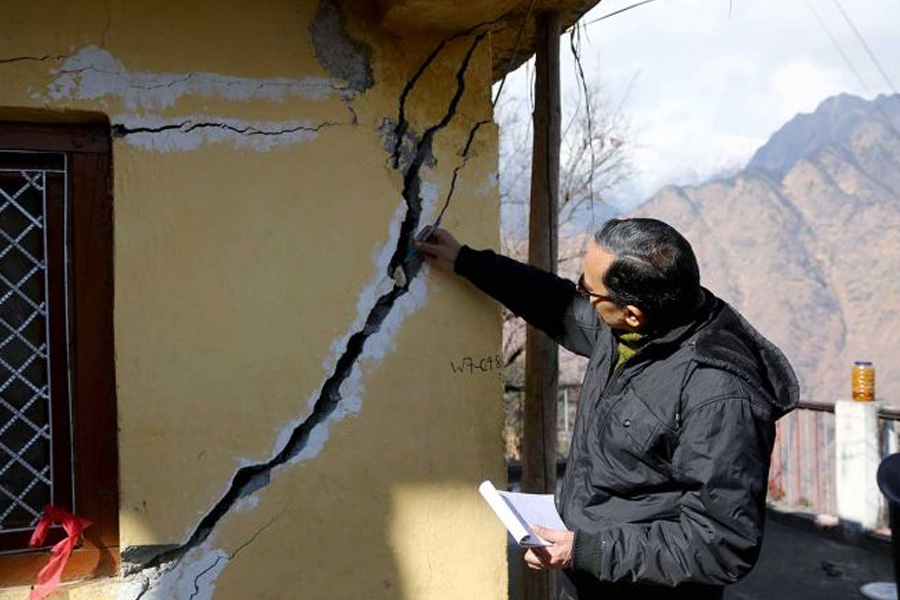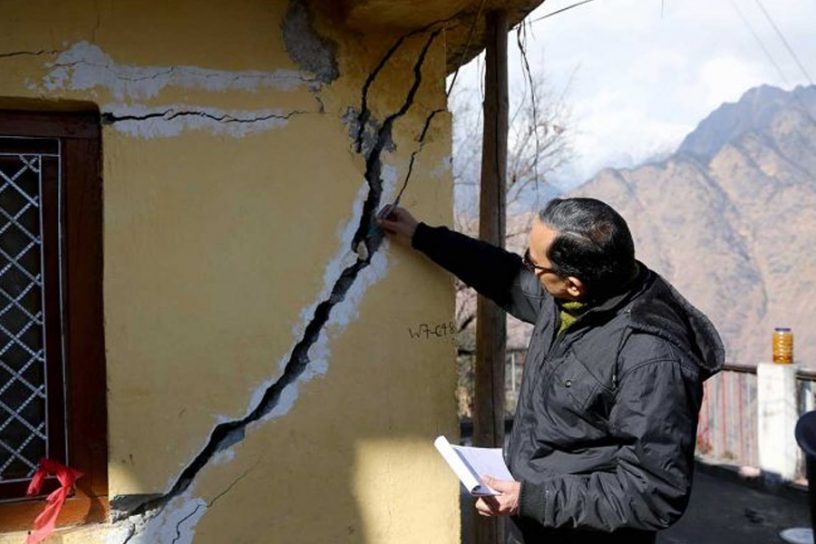
In view of the recent disaster in Uttarakhand, a cultural, economic, social and educational mechanism is necessary to save the environment as well as a compensation mechanism so that the right to life and personal liberty under Article 21 of the Constitution go hand in hand.
Authors
Abhinav Mehrotra, Assistant Professor, Jindal Global Law School, O.P. Jindal Global University, Sonipat, Haryana, India.
Biswanath Gupta, Associate Professor, Jindal Global Law School, O.P. Jindal Global University, Sonipat, Haryana, India.
Summary
The sinking of Joshimath town in Uttarakhand has once again raised the debate of achieving harmony between development and environmental safety. Though environmental disaster is a part of civilisation, paying compensation has been a central issue for the last decade or so. In this context, the role of early warning, mitigation and adaptation mechanisms, along with the need to inspire trust in the residents of the region, must be undertaken by ensuring their legal rights. In this case, it is the right to compensation.
Under the Constitution, environmental protection is included in Part IV which deals with the Directive Principles of State Policy that are considered fundamental in the governance of the country, but are not enforceable before a court of law. Article 48A of the Constitution has guidelines for the State to protect and improve the environment and safeguard the forests and wildlife of the country.
At the same time, under Article 51A (g), the duty of citizens has been prescribed to protect and improve the natural environment, including forests, lakes, rivers, wildlife, etc. Despite such provisions, violations of fundamental rights like the right to life and personal liberty under Article 21 continue as seen with the sinking of houses in Joshimath and people losing lives or being subjected to degrading environmental conditions.
So even as there is a link between the environment and human rights, there is an urgent need to include the affected population in decision-making concerning the environment.
In simple terms, the close connection between human rights and environmental protection can be understood from the dependence of individual rights like life, health, food, water and housing on the existence of a safe and healthy environment. Similarly, the concept of sustainable development highlights the economic, social and environmental sides. It states that the development carried out must not only meet the needs of the present, but also not compromise the ability of future generations to meet their needs.
Published in: India Legal
To read the full article, please click here.


